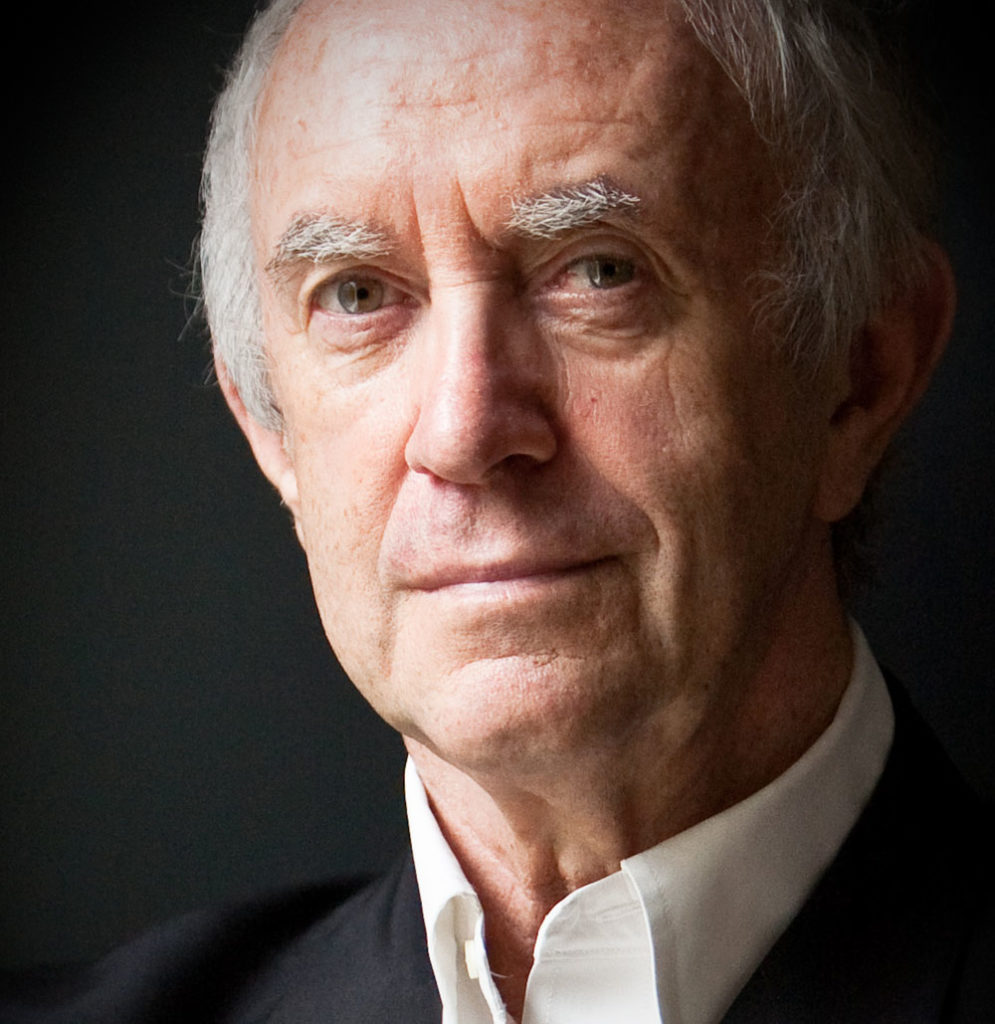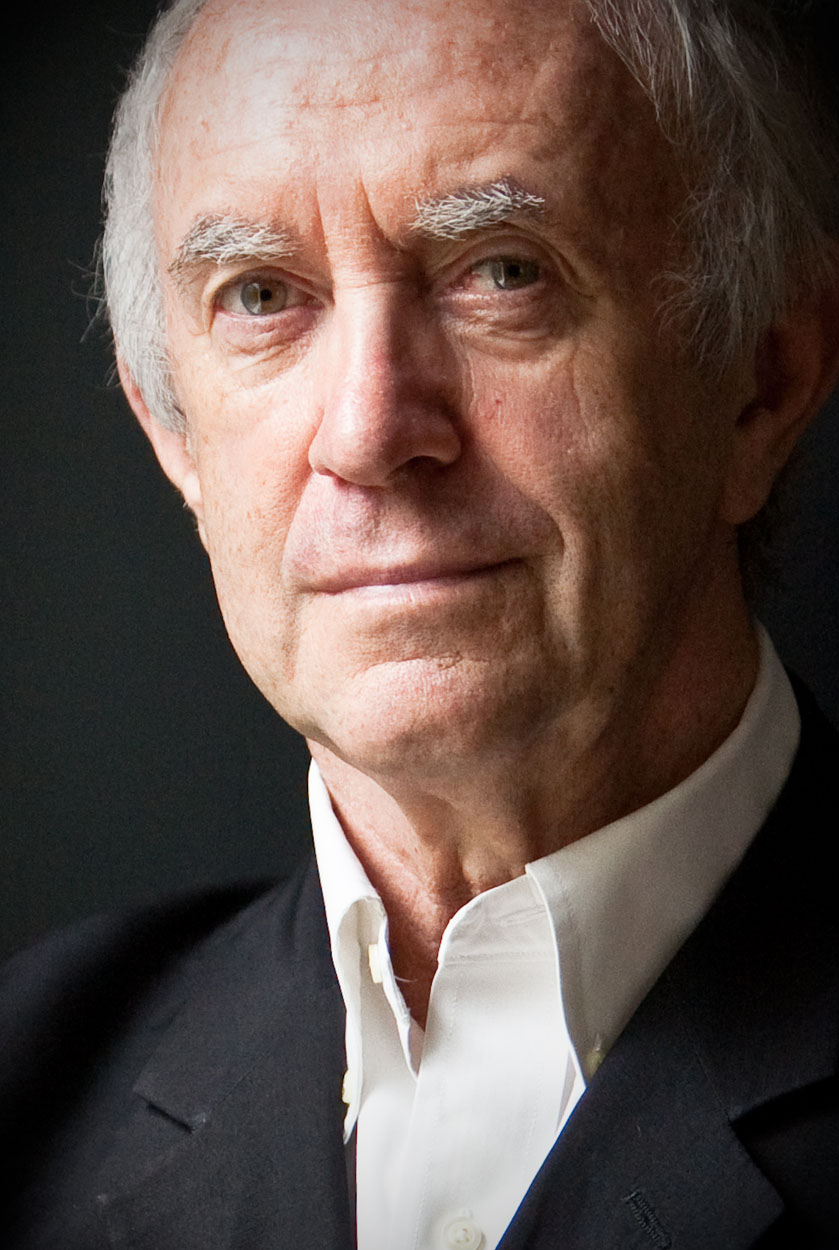 JONATHAN PRYCE is an internationally acclaimed and award-winning star of stage and screen. He plays André in the UK premiere of Florian Zeller’s The Height of the Storm alongside Dame Eileen Atkins which was recently at the Theatre Royal in Bath prior to opening at Wyndham’s Theatre in the West End. In this interview he talks about the play, its author and much more besides . . .
JONATHAN PRYCE is an internationally acclaimed and award-winning star of stage and screen. He plays André in the UK premiere of Florian Zeller’s The Height of the Storm alongside Dame Eileen Atkins which was recently at the Theatre Royal in Bath prior to opening at Wyndham’s Theatre in the West End. In this interview he talks about the play, its author and much more besides . . .
What attracted you to The Height of The Storm?
I like the poetry of it. I like that everything’s not presented to you on the page as an actor, so as an actor you have work to do to make it work for an audience. And hopefully for the audience it’s like a full experience, being emotionally moved by this story but at the same time it’s presented as a puzzle that they have to work out. It’s about a long marriage, this elderly couple where their daughter has been clearing the house out of all the excess as if somebody has died or it’s time to move on. During the course of the play you discover who it is, who maybe has died. I find it a very emotionally moving piece.
How would you sum up the character of André?
He’s an old man and a very successful writer, who I imagine is in some kind of semi-retirement now, who lives in the countryside in France. He’s a figure to whom things happen in the play. He’s not the protagonist and he’s not pushing the action forward; things happen around him. There are times when he’s confused and times when he’s quite bright about things. You can’t say he’s all things to all men but you see various facets of his personality.
Can you relate to him in any way? And what are the big differences?
[Laughs] I’m not as old as he is and my memory is still intact. It’s not clear if he has dementia but there’s definitely something happening to him. I don’t personally relate to him but I’ve known other people in this situation, elderly friends. Because people are living so much longer we’re more aware of what old people go through. When I was growing up people didn’t seem to be getting that old. If they were ill they died, whereas now if they’re ill they can hang on for a long time.
Does the role present any specific challenges for you?
I’m used to playing roles where the characters are highly-energised or driven. The last two things I’ve done on stage are Shylock and King Lear before that, but this is a man who doesn’t have that kind of energy. So the challenge is how to have energy but not the energy of a person who is capable of doing things or of sorting out his own situation. He’s not very proactive and I’m trying to find ways around that.
What do you see as the key themes of the play?
I think it’s about love and loss and family – how your children react to you in different ways and how they react differently to each other. And it’s about fragments of a life that come back to haunt you. Both for the husband and the wife bits of stories are revealed, like bits of his past life that haven’t been talked about for years and things that are quite painful to dredge up. It’s that confusion in old age of ‘Who are they talking about? Are they talking about me or my friend at that time? Was it me who had the affair or was it the friend?’
What do you feel makes Florian Zeller stand out as a playwright?
He’s still quite young but he wrote these two plays – The Father and this one – for the French actor Robert Hirsch, who was 92 when he played this role. It’s not many young writers who write such great roles for nonagenarians. He has this sensitivity and awareness of old age and his other plays like The Truth and The Lie are also very funny. They’re really good contemporary farces and they’re quite telling, with lots of astute observations about relationships and family and infidelity and all the other things we all concern ourselves with.
Why do you think Christopher Hampton is so revered as a translator?
I have a great deal of trust in Christopher. I’ve known him for quite a long time. We worked together on the film Carrington, which he wrote and directed. When it comes to his adaptations, he is a French speaker and he has a good ear for what Florian is trying to say.
This is the first time you’ve worked with Dame Eileen Atkins, who plays Madeleine, on stage. What are you most enjoying about the collaboration?
I’m really enjoying it. I know her work from the past and I have a great deal of respect for her. I think she’s a wonderful actress. Rehearsing with her, she definitely has a sense of humour. You want to work with really good people and she’s definitely one of them.
Have you worked with Jonathan Kent before? What are his special qualities as a director?
I’ve known Jonathan Kent for a long time but this is the first time I’ve worked with him. I’ve liked a lot of his productions and most recently I really enjoyed the Sweeney Todd he did with Imelda Staunton. For this you need someone who’s a bit of a showman, someone who can create a play out of a series of images, and Jonathan has that ability.
Given your long and distinguished career, what have been the highlights?
The honest answer is that the best job I ever had, which led to everything else, was my first job with the Everyman theatre company in Liverpool. If I hadn’t gotten that job at the Everyman and worked with Alan Dossor for two years I wouldn’t be the actor I am and I wouldn’t have met the people I met, wouldn’t have gone to Nottingham to do Comedians after Richard Eyre came to direct us in Liverpool, wouldn’t have gone to Broadway to do Comedians with Mike Nichols… All things being equal, one good thing has led on to other good things. That’s especially true of Comedians and Hamlet, and doing Miss Saigon was an extraordinary time in my life, to come to musical theatre in my early-40s, and that gave me a whole new lease of life and a whole new string of jobs.
What are the particular pleasures of doing theatre?
I absolutely love being in a company. It’s how I started, being in a rep company, and I love being in such a group of people. Despite critics being snide about actors, they’re some of the best people you’d want to be with.
Do you have any pre- or post-show rituals?
I always play music before a show. I always have music in the dressing room and as the run goes on I narrow it down to the same music. For that play at that time just before I go on stage I’ll play the same piece of music. I’ve tried changing it occasionally and have run back to the dressing room to play the original piece again. It’s usually something that’s not in the mood of the play I’m doing but something that’s the opposite. There’s a band I like very much called Beirut and that gets you going. It gets the energy up.
What do you hope people will take away from seeing The Height Of The Storm?
It’s quite a sad story but that’s not a bad feeling to have sometimes, where you can dredge up emotion. We all need to do it – we all need to cry at times. I hope people will leave having had a fulfilling experience and most of those who see it will definitely relate to how this family saga plays out.
The play calls at Bath Theatre Royal. Does it have a special significance for you?
I appeared in Bath in The Caretaker and it’s a great city to spend time in. It’s a bit of luxury to be able to spend two weeks there and to have time during the day to enjoy it.


